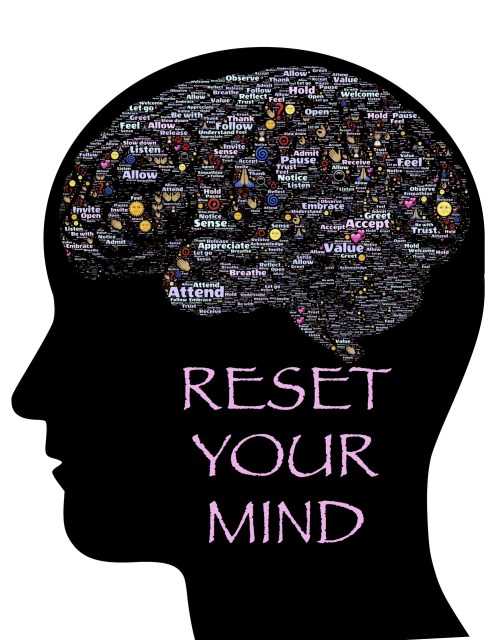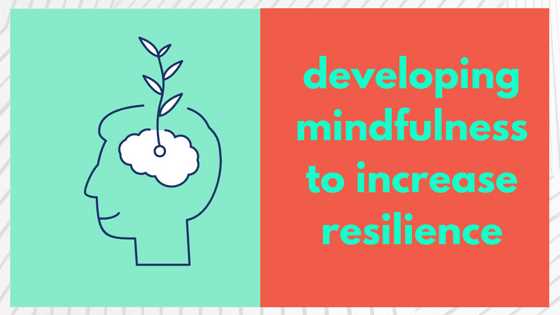
Stress has become an inevitable part of our lives, and its negative impact on our physical and mental well-being cannot be ignored. In recent years, researchers have been exploring various interventions to help individuals cope with stress and develop resilience. One such intervention that has gained significant attention is mindfulness.
In a study conducted by Whitton et al, the effectiveness of mindfulness interventions in developing resilience to stress was investigated. The researchers found that individuals who underwent mindfulness training showed a significant improvement in their ability to handle stress. Mindfulness, which involves paying attention to the present moment without judgment, was found to help individuals become more aware of their thoughts, emotions, and bodily sensations, allowing them to respond to stress in a more adaptive manner.
The study by Whitton et al also highlighted the role of mindfulness in enhancing self-compassion and self-regulation, which are crucial factors in developing resilience. By cultivating a non-judgmental and accepting attitude towards oneself, individuals can better understand and manage their emotions, leading to improved resilience in the face of stress. Furthermore, mindfulness was found to promote positive emotions and reduce negative emotions, further contributing to overall well-being.
Overall, the findings of the study suggest that mindfulness interventions can be a valuable tool in helping individuals develop resilience to stress. By incorporating mindfulness practices into their daily lives, individuals can become more aware of their thoughts and emotions, better regulate their responses to stress, and ultimately lead a more balanced and resilient life.
Mindfulness Interventions for Developing Resilience to Stress: Insights from Whitton et al

In the study conducted by Whitton et al, the researchers focused on the role of mindfulness interventions in developing resilience to stress. Stress is a common experience that can have detrimental effects on both mental and physical health. Developing resilience to stress is crucial for maintaining overall well-being.
The study by Whitton et al aimed to explore the effectiveness of mindfulness interventions in enhancing resilience to stress. Mindfulness is a practice that involves paying attention to the present moment with non-judgmental awareness. It has been shown to have numerous benefits for mental health, including reducing stress and improving overall well-being.
The researchers conducted a systematic review of existing studies on mindfulness interventions for stress resilience. They found that mindfulness interventions were effective in reducing stress levels and improving resilience to stress. These interventions included mindfulness-based stress reduction programs, mindfulness-based cognitive therapy, and other mindfulness-based interventions.
The findings of the study suggest that mindfulness interventions can be a valuable tool for individuals looking to develop resilience to stress. By practicing mindfulness, individuals can learn to observe their thoughts and emotions without judgment, allowing them to respond to stress in a more adaptive way. This can lead to a reduction in stress levels and an increase in overall well-being.
Overall, the study by Whitton et al provides valuable insights into the role of mindfulness interventions in developing resilience to stress. The findings highlight the potential benefits of mindfulness for individuals looking to cope with stress and improve their overall well-being. Further research is needed to explore the long-term effects of mindfulness interventions and to identify the most effective strategies for developing resilience to stress.
Understanding the Role of Mindfulness in Stress Management
Stress is a common experience in our daily lives, and it can have a significant impact on our mental and physical well-being. In order to develop resilience to stress, it is important to understand the role of mindfulness in stress management.
Mindfulness interventions, as researched by Whitton et al, are designed to help individuals develop the ability to be fully present in the moment and to cultivate an attitude of non-judgmental awareness. By practicing mindfulness, individuals can learn to observe their thoughts and emotions without getting caught up in them, which can help reduce stress levels.
One of the key benefits of mindfulness interventions is their ability to help individuals develop resilience to stress. By becoming more aware of their thoughts and emotions, individuals can learn to respond to stress in a more adaptive and effective way. Instead of reacting impulsively or becoming overwhelmed, individuals can learn to pause, observe their thoughts and emotions, and choose a more appropriate response.
Mindfulness interventions can also help individuals develop a greater sense of self-compassion. Through the practice of mindfulness, individuals can learn to treat themselves with kindness and understanding, even in the face of stress. This self-compassion can provide a buffer against the negative effects of stress and help individuals bounce back more quickly from challenging situations.
In conclusion, mindfulness interventions, as researched by Whitton et al, can play a crucial role in stress management. By helping individuals develop resilience to stress and cultivating a greater sense of self-compassion, mindfulness interventions can provide valuable tools for navigating the challenges of daily life.
The Concept of Mindfulness
In the study conducted by Whitton et al, mindfulness interventions were used to develop resilience to stress. Mindfulness is a practice that involves paying attention to the present moment, without judgment, and with an attitude of curiosity and acceptance. It is about being fully present and aware of one’s thoughts, feelings, and bodily sensations.
Mindfulness interventions can help individuals develop resilience by teaching them to observe their thoughts and emotions without getting caught up in them. This allows individuals to respond to stressors in a more adaptive way, rather than reacting automatically. By cultivating mindfulness, individuals can develop the ability to pause and choose how they want to respond to stress.
Research has shown that mindfulness interventions can have a positive impact on stress reduction and overall well-being. They have been found to reduce symptoms of anxiety and depression, improve attention and cognitive function, and enhance self-compassion and empathy. These interventions can be beneficial for individuals of all ages and backgrounds.
In conclusion, mindfulness interventions, as studied by Whitton et al, can help individuals develop resilience to stress. By cultivating mindfulness, individuals can learn to respond to stressors in a more adaptive way and improve their overall well-being. Further research is needed to explore the long-term effects and mechanisms of mindfulness interventions.
The Impact of Stress on Mental and Physical Health
Stress can have a significant impact on both mental and physical health. Research conducted by Whitton et al has shown that chronic stress can lead to a variety of negative outcomes, including increased risk of mental health disorders such as anxiety and depression, as well as physical health issues like cardiovascular disease and weakened immune function.
Mindfulness interventions, as developed by Whitton et al, can help individuals better cope with stress and mitigate its negative effects. Mindfulness involves paying attention to the present moment without judgment, and can help individuals develop a greater sense of self-awareness and emotional regulation. By practicing mindfulness, individuals can learn to identify and manage stress triggers, as well as cultivate a more positive mindset.
Research has shown that mindfulness interventions can be effective in reducing stress levels and promoting mental and physical well-being. These interventions often involve practices such as meditation, deep breathing exercises, and body scans, which can help individuals relax and reduce stress. By incorporating mindfulness into their daily lives, individuals can develop resilience to stress and improve their overall health and well-being.
The Relationship Between Mindfulness and Resilience

Mindfulness, as defined by Whitton et al, refers to the practice of intentionally paying attention to the present moment in a non-judgmental way. It involves cultivating a sense of awareness and acceptance of one’s thoughts, feelings, and bodily sensations. Research has shown that mindfulness interventions can help individuals develop resilience to stress.
Resilience, on the other hand, refers to the ability to bounce back and adapt in the face of adversity or challenging situations. It is a key component of mental well-being and plays a crucial role in maintaining overall health and happiness.
The relationship between mindfulness and resilience is a complex one. Mindfulness practices can help individuals develop the skills and qualities needed to enhance their resilience. By cultivating a non-judgmental and accepting attitude towards their experiences, individuals can develop the ability to observe their thoughts and emotions without becoming overwhelmed by them.
Research has shown that mindfulness interventions can help individuals develop a greater sense of self-awareness, emotional regulation, and cognitive flexibility. These skills are essential for building resilience as they enable individuals to effectively cope with stress and adversity. By being more aware of their internal experiences, individuals can better understand their own needs and respond to challenges in a more adaptive way.
Furthermore, mindfulness interventions can help individuals develop a greater sense of self-compassion and self-acceptance. This is crucial for building resilience as it allows individuals to be kind and supportive towards themselves, even in the face of difficulties. By cultivating a compassionate attitude towards themselves, individuals can develop the strength and resilience needed to navigate through life’s challenges.
In conclusion, the relationship between mindfulness and resilience is a powerful one. Mindfulness interventions can help individuals develop the skills and qualities needed to enhance their resilience to stress. By cultivating self-awareness, emotional regulation, cognitive flexibility, and self-compassion, individuals can build the resilience needed to thrive in the face of adversity.
Whitton et al Study: Examining the Effectiveness of Mindfulness Interventions
In their study, Whitton et al aimed to examine the effectiveness of mindfulness interventions in helping individuals develop resilience to stress. They conducted a comprehensive review of existing research on mindfulness interventions and their impact on resilience.
The findings of the study indicated that mindfulness interventions can indeed be effective in developing resilience. These interventions, which typically involve practices such as meditation and mindful breathing, were found to enhance individuals’ ability to cope with stress and adversity.
One key aspect of mindfulness interventions is their focus on present-moment awareness and non-judgmental acceptance of thoughts and emotions. By cultivating this mindset, individuals are better able to observe and respond to stressors in a calm and constructive manner.
The study also highlighted the importance of regular mindfulness practice in order to reap the benefits. Participants who engaged in consistent mindfulness practice over a period of time showed greater improvements in resilience compared to those who only engaged in occasional practice.
Overall, the findings of the Whitton et al study suggest that mindfulness interventions can be a valuable tool in developing resilience to stress. By incorporating mindfulness practices into their daily lives, individuals can enhance their ability to navigate challenging situations with greater ease and adaptability.
Research Design and Methodology
The research conducted by Whitton et al aimed to develop and evaluate mindfulness interventions for developing resilience to stress. The study utilized a mixed-methods approach, combining quantitative and qualitative data collection methods.
Participants were recruited from a variety of settings, including universities, workplaces, and community organizations. They were randomly assigned to either an intervention group or a control group. The intervention group received mindfulness training, while the control group did not receive any specific intervention.
The mindfulness interventions consisted of guided meditation practices, mindfulness exercises, and group discussions. Participants in the intervention group attended weekly sessions for a period of eight weeks. They were also encouraged to practice mindfulness exercises on their own between sessions.
Data collection included pre- and post-intervention assessments of resilience, stress levels, and mindfulness. Resilience was measured using validated scales, while stress levels were assessed through self-report measures. Mindfulness was measured using self-report measures as well as objective measures such as heart rate variability and cortisol levels.
In addition to quantitative data, qualitative data was collected through interviews and focus groups with participants. These qualitative data provided insights into participants’ experiences with the mindfulness interventions and their perceptions of the impact on their resilience and stress levels.
The data collected was analyzed using both quantitative and qualitative methods. Quantitative data was analyzed using statistical tests to compare the intervention and control groups on various measures of resilience, stress, and mindfulness. Qualitative data was analyzed using thematic analysis to identify common themes and patterns in participants’ experiences and perceptions.
The research design and methodology employed by Whitton et al allowed for a comprehensive evaluation of the effectiveness of mindfulness interventions in developing resilience to stress. The combination of quantitative and qualitative data provided a deeper understanding of the impact of these interventions on individuals’ well-being.
Key Findings from the Study
The study conducted by Whitton et al examined the effectiveness of mindfulness interventions in developing resilience to stress. The researchers found that mindfulness interventions can indeed help individuals build resilience and cope with stress more effectively.
One key finding from the study is that participants who underwent mindfulness interventions reported lower levels of perceived stress compared to those who did not receive any intervention. This suggests that practicing mindfulness can have a significant impact on reducing stress levels.
Furthermore, the study found that mindfulness interventions were particularly effective in improving emotional regulation. Participants who practiced mindfulness reported better control over their emotions and were able to respond to stressful situations in a more calm and composed manner.
Another important finding was that mindfulness interventions improved participants’ self-awareness and self-compassion. By cultivating mindfulness, individuals were able to develop a greater understanding of their own thoughts, feelings, and behaviors, which in turn helped them show more kindness and compassion towards themselves.
The study also highlighted the long-term benefits of mindfulness interventions. Participants who continued to practice mindfulness after the intervention period reported sustained improvements in resilience and decreased levels of stress even months after the intervention ended.
In conclusion, the findings from this study support the use of mindfulness interventions as an effective approach for developing resilience to stress. Mindfulness can help individuals manage stress, regulate emotions, increase self-awareness, and cultivate self-compassion. These key findings provide valuable insights for individuals, therapists, and organizations seeking to enhance resilience and well-being.

I am Patrina de Silva, a psychologist and mental health blogger in Sri Lanka. After obtaining psychology degrees from the University of Colombo and Monash University, I returned home to work as a counselor while also starting the popular blog “Pressy but Happy” to provide advice on psychological issues. Over the past decade, my empathetic articles have made my blog a leading mental health resource in the country. In addition to writing, I maintain a private therapy practice, frequently volunteer counseling time, and conduct seminars, driven by my passion for destigmatizing mental illness and educating the public on the mind-body connection. I strive to be an influential voice in my field through my compassionate approach.
